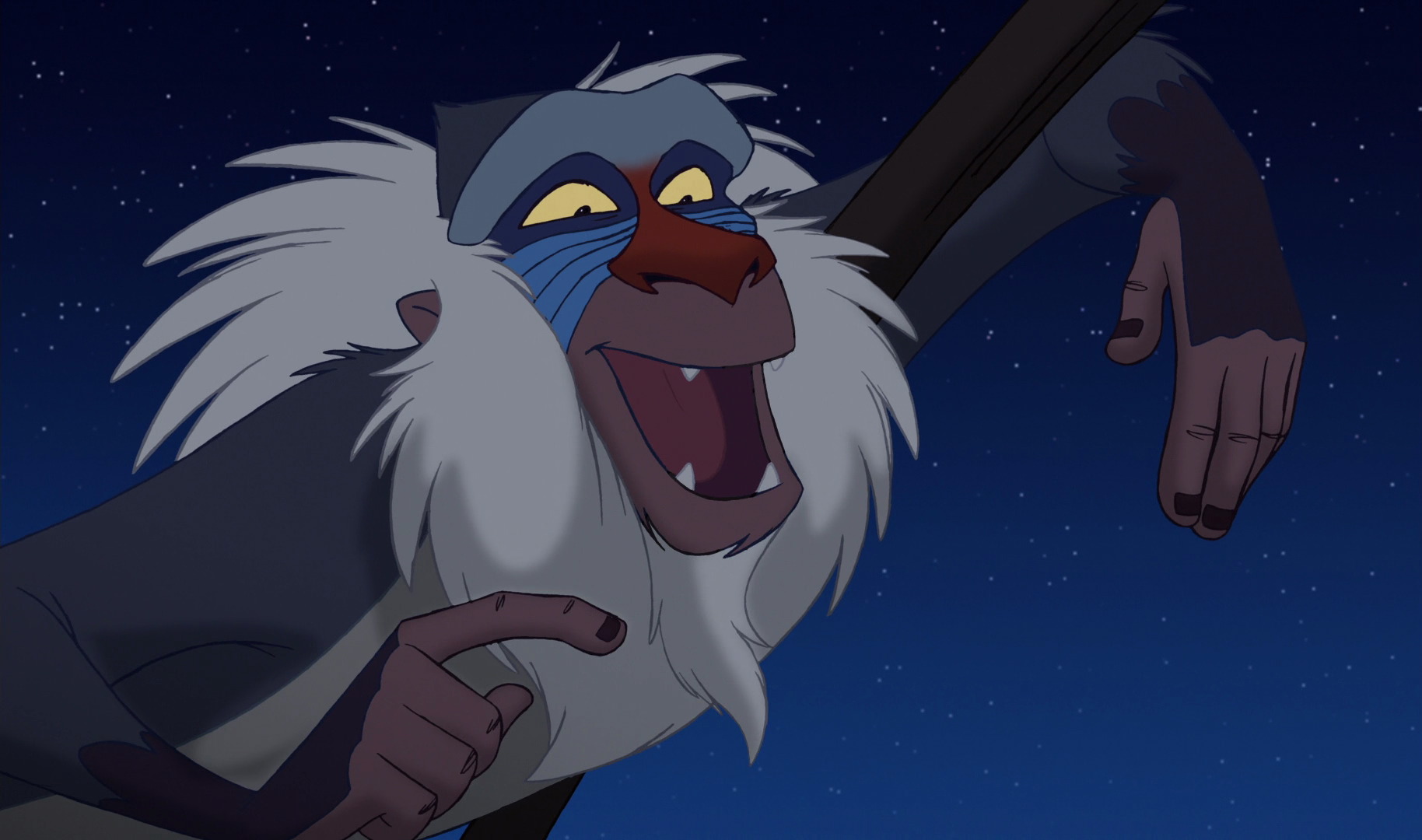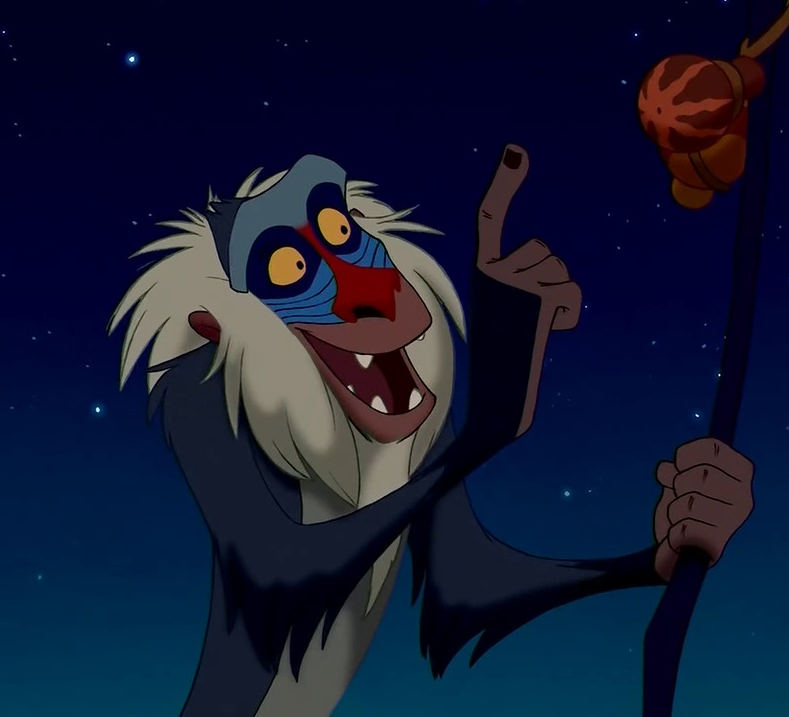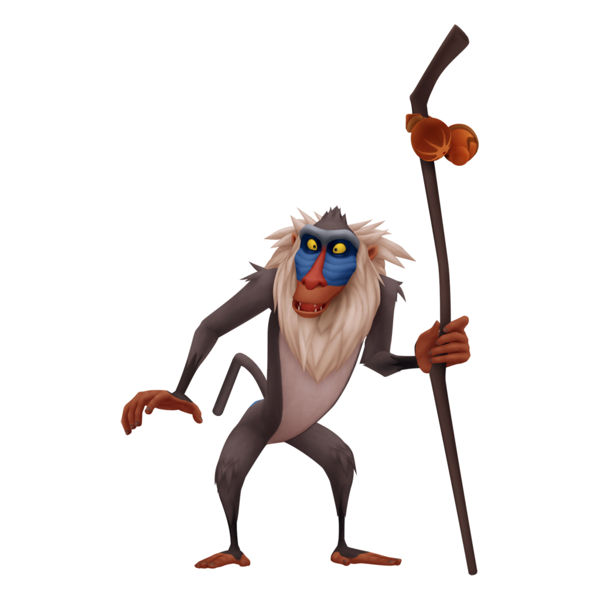So, here we are talking about one of the most iconic characters in the world of animation and cinema: the monkey off of Lion King. You know exactly who I’m talking about—Rafiki. The wise old baboon who plays a pivotal role in guiding young Simba through life’s ups and downs. But let me ask you this: how much do you really know about this legendary simian star? Stick around, because we’re about to uncover everything you need to know about Rafiki and his significance in The Lion King universe.
This isn’t just another article about a cartoon monkey. Oh no. This is a deep dive into the cultural, symbolic, and even historical significance of Rafiki. We’ll explore his origins, his personality, and why he’s become such an enduring figure in pop culture. If you’ve ever wondered why Rafiki is so important or what his presence means for the story, you’re in the right place.
So grab your popcorn, and let’s get started. Whether you’re a die-hard fan of The Lion King or just someone who loves learning about the magic behind Disney’s greatest hits, this article’s got something for everyone. Let’s go!
- Uncovering Vedang Rainas Stature Discover His Height In Feet
- The Official Website Of Kevinurratt Jr Music Videos And More
Table of Contents
Behind the Scenes of Rafiki’s Creation
Biography of Rafiki
Let’s start with the basics. Rafiki, the monkey off of Lion King, is more than just a side character. He’s a mentor, a shaman, and a guiding force in the Pride Lands. Born in the Pride Lands, Rafiki is a mandrill baboon who serves as the shaman to the lion kings. His exact age is unknown, but it’s clear that he’s been around for a while—he’s wise, experienced, and knows the land like the back of his hand.
But wait, there’s more. Here’s a quick rundown of Rafiki’s personal details:
Rafiki’s Bio Data
| Full Name | Rafiki |
|---|---|
| Species | Mandrill Baboon |
| Role | Shaman to the Lion Kings |
| Place of Origin | Pride Lands |
| Signature Item | Gourde (a staff-like object) |
Rafiki’s life isn’t all about being a wise old baboon, though. He’s got quirks, habits, and a unique personality that make him stand out. Let’s dig deeper into what makes Rafiki tick.
Characteristics of Rafiki
Now, let’s talk about what makes Rafiki so special. First off, he’s wise. Like, super wise. Rafiki knows the ways of the world and the secrets of the Pride Lands. He’s got this mystical aura about him that makes you believe every word he says. But here’s the thing—he’s not all serious all the time. Rafiki’s got a playful side, too. He’s known for his eccentric behavior, like painting portraits of lions on cave walls and swinging around on vines like Tarzan.
Here’s a quick list of Rafiki’s key characteristics:
- Wise and knowledgeable
- Playful and eccentric
- Compassionate and caring
- A natural-born leader
- Symbol of hope and renewal
And let’s not forget his signature catchphrase: “Asante sana, squash banana, we we nugu, mi mi apana!” Yup, that’s Rafiki for you—wise, quirky, and always ready with a clever saying.
Symbolism in Rafiki’s Role
Rafiki’s role in The Lion King goes beyond being just a supporting character. He’s a symbol of wisdom, tradition, and renewal. Think about it: Rafiki’s the one who crowns Simba as king, marking the beginning of a new era in the Pride Lands. He’s the bridge between the past and the future, ensuring that the circle of life continues unbroken.
But Rafiki’s not just about crowning kings. He’s also about teaching lessons. Through his interactions with Simba, Rafiki shows us the importance of embracing the past, learning from it, and moving forward. His famous quote, “It’s in the past, and therefore it doesn’t matter,” teaches us that dwelling on the past won’t solve anything. Instead, we need to focus on the present and the future.
And let’s not forget his connection to nature. Rafiki’s deep understanding of the natural world symbolizes the importance of living in harmony with the environment. He’s a reminder that we’re all part of a larger ecosystem, and we need to respect and protect it.
Origins of Rafiki
Where did Rafiki come from? Well, the character of Rafiki was created specifically for The Lion King. He’s based on the mandrill baboon, a species known for its vibrant colors and distinctive features. The creators of The Lion King wanted a character who could serve as a mentor and guide for Simba, and Rafiki fit the bill perfectly.
Rafiki’s name itself is rich with meaning. In Swahili, “Rafiki” means “friend” or “companion.” This ties directly into his role as Simba’s mentor and guide. He’s more than just a wise old baboon—he’s a true friend who’s always there when Simba needs him.
And here’s a fun fact: Rafiki’s staff, the gourde, is inspired by traditional African instruments. It’s not just a prop—it’s a symbol of Rafiki’s connection to his roots and his role as a shaman.
Cultural Impact of Rafiki
Rafiki’s impact on pop culture cannot be overstated. He’s become one of the most beloved characters in Disney’s vast library of animated films. Fans love him for his wisdom, his humor, and his unique personality. But Rafiki’s influence extends beyond just being a lovable cartoon character.
He’s also a symbol of African culture and traditions. The Lion King, as a whole, draws heavily from African folklore and mythology, and Rafiki is a key part of that. His presence in the film helps introduce audiences to the rich cultural heritage of Africa, making The Lion King more than just a story—it’s a celebration of diversity and tradition.
And let’s not forget the music. Rafiki’s scenes are often accompanied by traditional African rhythms and melodies, adding to the film’s authentic feel. It’s no wonder that Rafiki has become such an iconic figure in pop culture.
The Voice Behind Rafiki
Who gives Rafiki his voice? That would be the talented Robert Guillaume. Guillaume was a veteran actor and voice artist who brought Rafiki to life with his rich, deep voice and impeccable comedic timing. His performance was so iconic that he reprised the role in several sequels and spin-offs, including The Lion King 2: Simba’s Pride and The Lion Guard.
Guillaume’s portrayal of Rafiki was praised for its authenticity and depth. He captured the character’s wisdom, humor, and compassion perfectly, making Rafiki one of the most memorable characters in Disney history. Unfortunately, Guillaume passed away in 2017, but his legacy lives on through his unforgettable performance as Rafiki.
Fun Facts About The Lion King
Here are some fun facts about The Lion King and Rafiki that you might not know:
- Rafiki’s staff is made from a baobab tree, a species native to Africa.
- The original draft of The Lion King didn’t have Rafiki in it. He was added later to give the film a more mystical feel.
- Rafiki’s paintings in the cave are inspired by real-life rock art found in Africa.
- Robert Guillaume improvised many of Rafiki’s lines, including the famous “Asante sana” chant.
These little details add to the richness of The Lion King’s world and make it such a beloved classic.
Behind the Scenes of Rafiki’s Creation
Creating Rafiki wasn’t easy. The animators at Disney had to study real mandrill baboons to get his movements and expressions just right. They even visited zoos and wildlife sanctuaries to observe the animals up close. This attention to detail is what makes Rafiki so lifelike and believable.
But it wasn’t just about the animation. The voice acting was equally important. Robert Guillaume’s performance brought Rafiki to life in ways that no amount of animation could. His ability to convey both wisdom and humor through his voice made Rafiki a truly unforgettable character.
And let’s not forget the music. Hans Zimmer’s score for The Lion King, especially the scenes involving Rafiki, is nothing short of magical. The combination of traditional African rhythms and modern orchestration creates a sound that’s both familiar and exotic, perfectly capturing the essence of Rafiki and the Pride Lands.
Famous Quotes by Rafiki
Here are some of Rafiki’s most famous quotes:
- “Asante sana, squash banana, we we nugu, mi mi apana!”
- “It’s in the past, and therefore it doesn’t matter.”
- “The past can hurt. But the way I see it, you can either run from it or learn from it.”
- “Look beyond what you see.”
These quotes aren’t just catchy—they’re profound. They teach us valuable life lessons about embracing the past, learning from our mistakes, and looking beyond the surface to find deeper truths.
Conclusion
So there you have it—everything you need to know about the monkey off of Lion King, Rafiki. From his origins and characteristics to his cultural impact and famous quotes, Rafiki is a character who’s left an indelible mark on pop culture. He’s more than just a wise old baboon—he’s a symbol of wisdom, tradition, and renewal.
So the next time you watch The Lion King, take a moment to appreciate Rafiki’s role in the story. He’s not just a supporting character—he’s a guiding force who helps Simba find his way. And remember, whether you’re dealing with the past, present, or future, Rafiki’s got a lesson for you.
Now it’s your turn. What’s your favorite Rafiki moment? Leave a comment below and let us know. And don’t forget to share this article with your friends. After all, knowledge is power, and Rafiki would want you to spread it around. Until next time, remember: hakuna matata!


